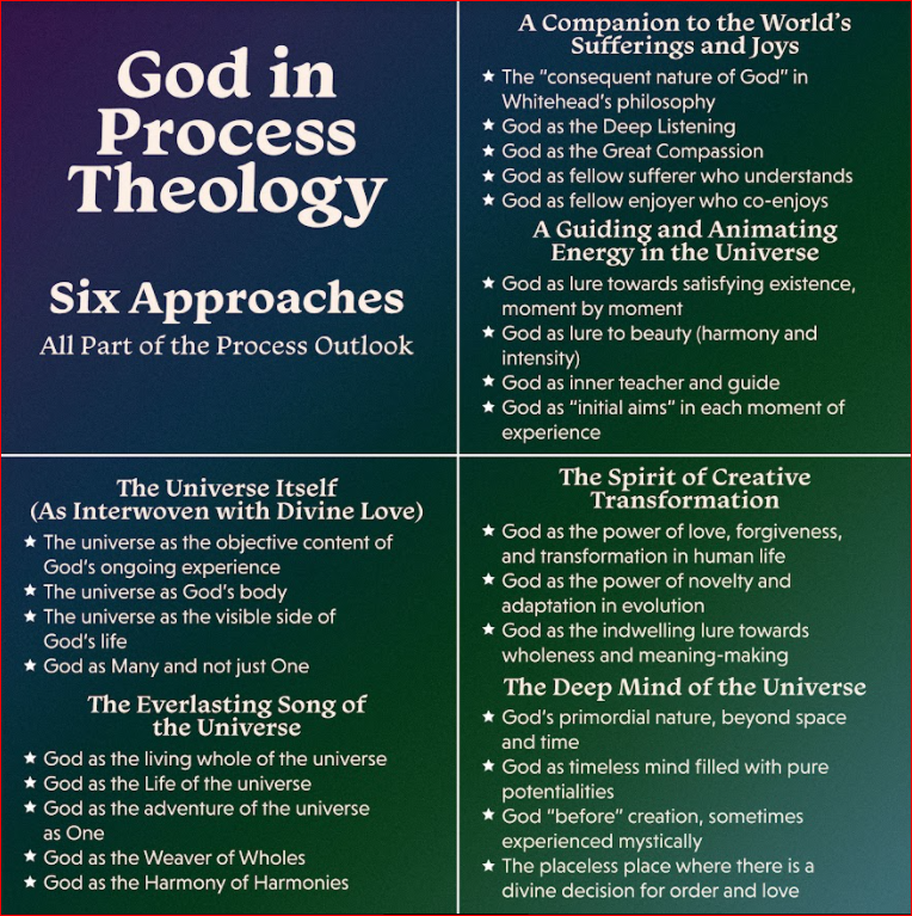Process philosophers and theologians are known for their indebtedness to Whitehead and his doctrine of God. They are not limited to Whitehead's way of thinking, but they are influenced by it. One value of Whitehead’s understanding of God, for many, is that it is consonant with religion and science. You can be deeply scientific and deeply religious at the same time. Another is that it includes a unique and hopeful way of envisioning the universe itself. Indeed, its plausibility depends on the idea that the universe itself is organic rather than mechanistic. This means that, in order to make sense of God, we must first ask, not "What is God like?" but rather "What is the world like?" Only if we rethink the world as creative and dynamic, will it make sense to think of God as a principle of order and novelty in the dynamism. Still another value of Whitehead's approach, for many, is that it is rational. Yes, it speaks to some deep intuitions that are important in religious life. But Whitehead bases most of his views, not on an appeal to special revelation or private faith, but on philosophical inquiry. Whitehead believes it is more rational to believe in God than not to believe, given that we live in a creative, organic cosmos. John Cobb's introduction to Whitehead's doctrine of God is an excellent place to begin, so that you can judge for yourself.
- Jay McDaniel
- Jay McDaniel

